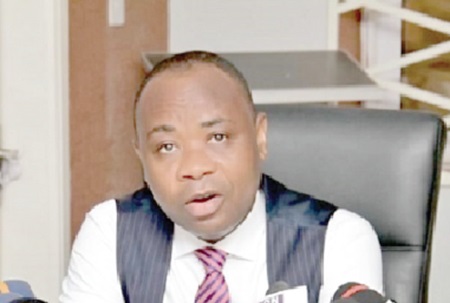
PRESEC staged kidnapping: Proceedings must adhere to Act — Child Rights International
A non-governmental organisation (NGO), Child Rights International (CRI), has called on the police and all relevant stakeholders to ensure any, and all legal proceedings involving children adhere strictly to the Juvenile Justice.
This was in response to a recent publication by the Ghana Police Service on April 5, 2024 regarding the alleged staged kidnapping incident involving four juveniles of the Presbyterian Boys Senior High School (PRESEC) Legon and two adults, in an attempt to extort money for travel purposes.
A statement signed by the Executive Director, Bright Appiah,said it was imperative that all trials concerning the juveniles be conducted within the juvenile justice system to ensuring that due process and fairness were upheld.
For instance, it said, the police must make arrangements to detain the juvenile in a part of a police station special designated for juveniles or in a part of a police station which was separate from the area where persons other than juveniles were detained, in compliance with Section 15(1) of the Act,
Furthermore, it said the custody, the detention, and the trial of the children should strictly comply with the Juvenile Justice Act (653) Section 1(2) which stipulates that juveniles be dealt with in a manner which is different from adults except under exceptional circumstances under Section 17 of the same act.
Privacy
Although CRI commended the police for their swift intervention in the matter and effectively managing the situation and preserving the privacy of the juveniles involved in their official releases, it intimated that throughout the judicial process, the utmost respect for the dignity and privacy of the juveniles must be maintained.
That, it said, was in accordance with Section 3(1) and (2) of the Juvenile Justice Act which sought to protect the privacy and identity of the youngsters. It stated that a juvenile had the right to privacy during arrest, the investigation of an offence, at the trial of the offence, and at any other stage of the cause or matter.
It further stipulated that no one was allowed to release any information for publication that might lead to the identification of the juveniles during the course of the arrest, investigation, trial or any stage in all of the matter connected to the alleged offence of the juveniles.
The statement urged all parties involved, including institutions, organisations, and media entities, to act in accordance with the law when reporting on this case and called on them to refrain from actions that could compromise the rights of the juveniles in order to make the rehabilitation before and after the trial effective.
“Regardless of the outcome of the investigation that will lead to the legal proceedings, whether the juveniles are found culpable or not, it is imperative that their rehabilitation be prioritised in line with Section 2 of the Act, which underscores the paramount importance of the best interests of the juvenile,” it added.
The statement said the NGO acknowledged the significant public interest surrounding this case because it presented an opportunity for constructive dialogue aimed at reassessing societal priorities concerning the upbringing and socialisation of children.
It said, it was therefore, crucial to recognise that children were a reflection of their environments, and as such, collective efforts were required to foster a conducive and supportive society for their development.
